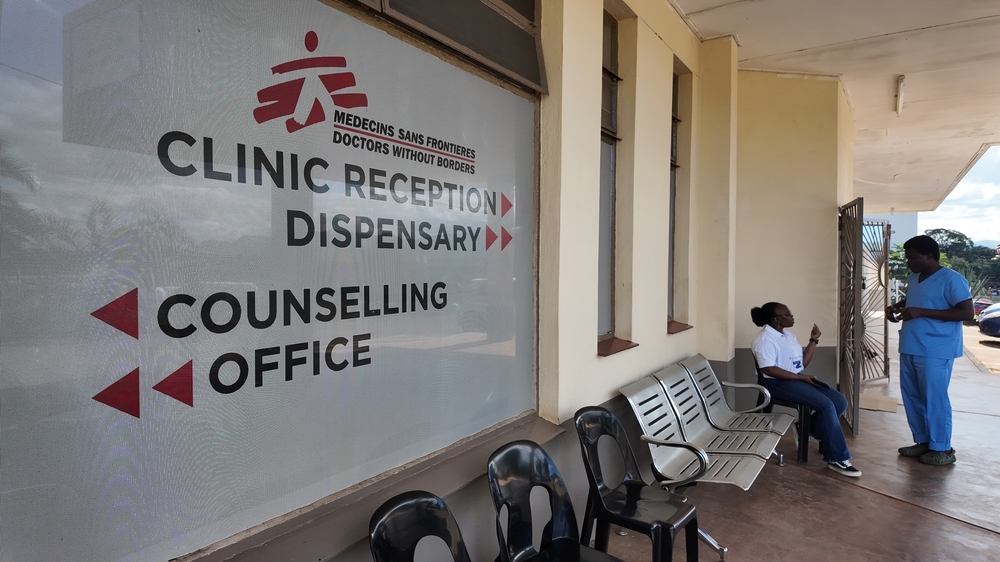WITH Eswatini ranked second in the world for the highest number of suicides, Médecins Sans Frontières (MSF) Sitsandziwe Clinic has extended a helping in addressing this challenge.
The clinic has provided mental health consultations to 314 people as of September 30. According to MSF, these consultations were offered to all genders seeking support for suicidal thoughts, stress, trauma, anxiety, or emotional distress, not only those linked to sexual and reproductive health concerns, but also broader challenges such as family struggles and overall emotional wellbeing.
| Eswatini Observer WhatsApp Channel
MSF Medical Coordinator in Eswatini, Dr Joseph Joe, said the clinic was located in Matsapha under the Manzini region, which is the most populated.
He explained that Manzini’s high concentration of residents, coupled with a largely young and mobile population, created a unique demand for mental health services.
“The area includes diverse socio-economic groups such as university students, factory workers (with over 700 factories nearby), and sex workers, among others, making it a hotspot where the need for both sexual and mental healthcare is extremely high,” he said.
Meanwhile, statistics shared by the World Health Organization (WHO) during the commemoration of World Suicide Prevention Day in September revealed that between 2021 and 2025, Eswatini recorded 387 suicide-related cases at health facilities.
During the commemoration, the data that was shared by the Royal Eswatini Police Service (REPS) revealed that between 2022 and 2024, there were 486 completed suicides, of which 80% were men and 20% women. The majority of victims (69%) were aged 25 and above. The most common methods for committing suicide included, poisoning using insecticides 252 cases (52%), hanging 212 cases (44%), self-inflicted injuries such as burning, stabbing, or jumping in front of a moving vehicle 16 cases (3%), and firearm-related suicides were six cases (1%).

In its second quarter performance report tabled in the House of Assembly two weeks ago, the REPS noted that 43 people died by suicide in the past three months, 37 males and six females. The report highlighted that suicide remains a deeply serious and sensitive issue, affecting law enforcement, both in responding to cases among the public and in addressing suicides within the police service itself.
MSF psychologist Nomthandazo Maphalala said Eswatini, with a population of over one million, has only one mental health hospital, the National Psychiatric Referral Hospital in Manzini. She said the facility served people from all four regions, making access difficult for many due to travel distances.
“There are also cultural beliefs, like the idea that men do not cry or show vulnerability. This becomes a barrier for those needing help.
Low employment rates and economic challenges also contribute to suicide-related behaviours such as thoughts of death and self-harm. Many people adopt unhealthy ways of coping with their situations, which can sometimes become extreme,” said Maphalala.
MSF Project Medical Referent Dr Florian Prechter said mental health conditions could be as serious as physical illnesses such as syphilis or gonorrhea, and often even harder to treat.
“At the MSF clinic, we provide not only diagnosis and treatment for infections like gonorrhea and hepatitis but also mental health support for issues such as stress, anxiety, and depression. We care for both the body and the mind because physical health problems can cause mental health issues and vice-versa,” he said.
Dr Prechter added that only about 20% of their patients were men as seeking psychological support was often viewed as a sign of weakness.
“To truly be healthy, we must care for our minds as much as we care for our bodies. Talking to a psychologist is no more a sign of weakness than talking to your doctor. Everyone deserves good mental health,” he said.
One of the survivors shared that, despite the stigma surrounding mental health, the support she received through counselling sessions was life-changing. “It took time for me to be comfortable with life because being pregnant triggered the pain of past sexual abuse. The sessions have helped me develop coping mechanisms, especially with sleeping. I am still attending them, and I believe that with time, everything will be okay,” she said.
Eswatini Observer Press Reader | View Here









